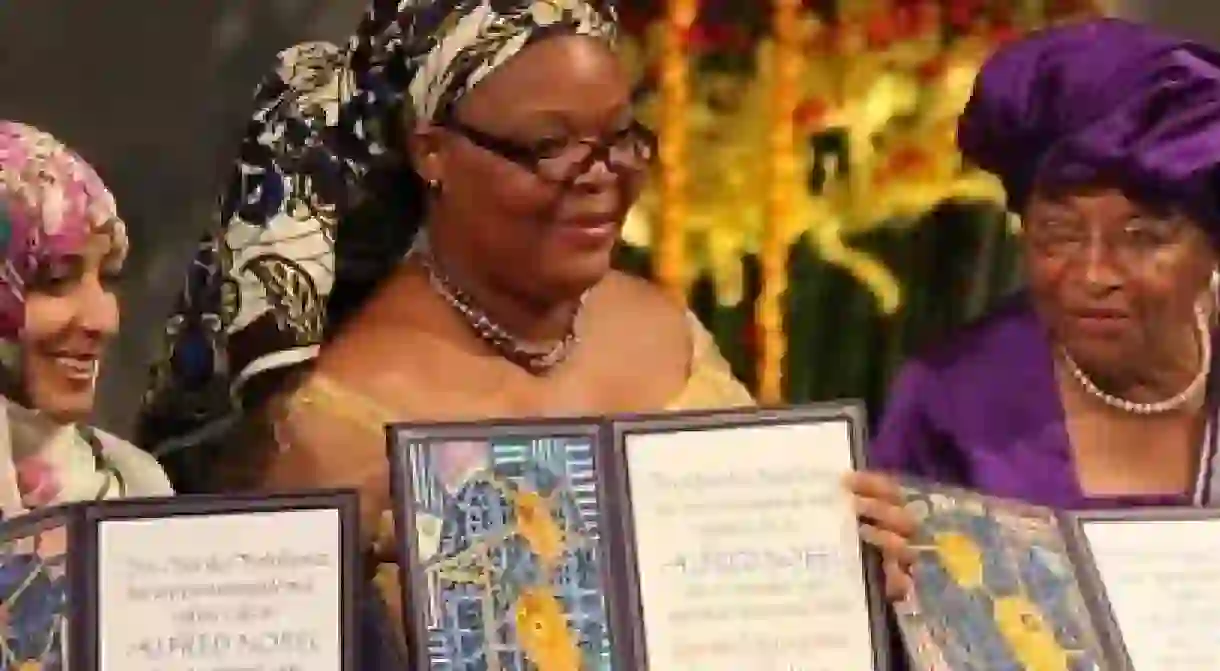Women In Pursuit Of Peace: A Shared Nobel Prize

Three women from two countries shared the 2011 Nobel Prize for Peace. By awarding the prize to Ellen Johnson Sirleaf and Leymah Gbowee of Liberia, and Tawakkul Karman of Yemen, the Nobel committee sought to focus attention on the non-violent struggle for peace led by women.
Ellen Johnson Sirleaf, Liberia
As the first elected female head of state in Africa, Ellen Johnson Sirleaf, the current President of Liberia, is certainly the best-known of these women internationally. ‘Ma Ellen’, as she is fondly called by many Liberians, took over a country ravaged by war and chaos in 2006; in her five years as president, foreign investments has begun trickling back into Liberia and its foreign debt has been reduced. At the same time, much remains to be done. On Tuesday 11 October, Liberians cast their ballots for their next president; Sirleaf faced strong opposition from Winston Tubman of the Congress Democratic Change Party, who criticised the Nobel Prize as external meddling in Liberia’s politics. Nonetheless, she was elected for her second – and last – term; Sirleaf will be 79 when it ends.
Tawakkul Karman, Yemen
Tawakkul Karman, a Yemeni journalist, activist, and senior member of the opposition party, founded a rights’ group called Women Journalists Without Chains in 2005. She also organized regular sit-ins in Tahrir Square, Sana’a, the capital of Yemen, when protests calling for the resignation of Yemeni President Ali Abdullah Saleh were taking place. Calling for a ‘Day of Rage’ in February 2011 to end Saleh’s 33-year rule, Karman continued to mobilize Yemenis against the Saleh government; she learned the news of her selection for the Nobel Peace Prize while encamped in her tent in Tahrir Square.
Leymah Gbowee, Liberia
Liberia’s savage civil war destroyed life as Leymah Gbowee knew it. In 2002, Gbowee helped to organize women across Liberia in the Liberian Mass Action for Peace to put pressure on then-President Charles Taylor to end the Second Liberian Civil War (1999-2003) through non-violent protest. Their efforts are recorded in the 2008 documentary film Pray the Devil Back to Hell. She also mobilized Christian and Muslim women to join together to support Ms Sirleaf’s 2005 presidential bid. Gbowee’s memoir, Mighty Be Our Powers, chronicles the violence and struggles she has witnessed and her experiences empowering women for peace.













